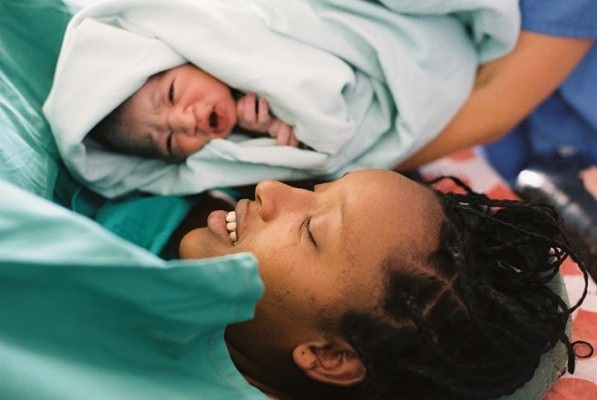February 8th
Sometimes it is frustrating here as even though we can too our bit obstetrically, other resources are so limited that it is not enough to avoid tragic outcomes.
This week a young 18year old was admitted in labour. She was an amazingly beautiful woman from a tribal area about 3-hours drive from Gimbie. The people are ethnically distinct tall; slim with perfect erect posture and ebony skin. They practice skin scarification, which is not just on the face but also all over the chest and abdomen and was particularly beautiful in this woman (I am told that the practice is now disappearing as more "education" occurs in the tribes).
She had been in labour for 3-days and had travelled many hours to get here walking part of the way due to lack of transport. On arrival the baby was still alive and seemed to be in reasonable shape (compared to many). The baby did not feel particularly big but that is not particularly unusual as the narrow diameter of the pelvis (from back to front) that exists in women here means that there can be problem during birth even if a small baby is not in the ideal position. However when I examined this woman although the labour was obstructed and she was not fully dilated it felt different to other seemingly similar situations that I have managed here. Being a scan doctor when faced with anything seemingly unusual the natural response is to do a scan, which is what I did. The scan revealed that the baby had a lot of fluid on the brain (hydrocephalus) making the head so big that it would be impossible for the baby to deliver through any pelvis. Sadly I was also suspicious that the brain development might already have been affected. Sometimes operations are performed here when babies have died during the labour to decompress the head so that the mother can avoid the morbidity of a caesarean section and deliver vaginally. In this case this was not an option as the baby was alive and also the head was in a position that this sort of operation can be associated with a lot of maternal complications and therefore could not be performed.
I delivered her by caesarean section, which was still a struggle to get the very large head to deliver. The baby was born in good condition and at birth required no resuscitation. It is definitely the worst case of hydrocephalus that I have ever seen. In the UK most cases like this would be found on the 20week scan and the majority of women would choose not to continue the pregnancy as the long-term prognosis for mental and physical handicap is very poor. Initially the baby handled well, she had a good suck reflex and so she breast fed well albeit she had classic textbook signs of severe hydrocephalus (an enlarged head & a sign called "sunset eyes" where the pressure of the fluid in the brain presses on the eye balls so that they are pushed downwards so that only upper half of the pupil is visible above the lower eye lid- hence the name of the sign) and a rather unusual high-pitched cry.
In the UK a brain scan would occur virtually immediately and then a special drain called a shunt would be inserted to relieve the pressure on the brain. There is no question of anything like that being done in Gimbie so any further treatment would have meant going to Addis but even this assumes that the family can afford to pay for treatment and that there is someone in Addis able to do the surgery. The family could not afford to pay but sometimes there are charitable funds to help with this sort of treatment available but unfortunately it all proved theoretical, as when he phoned around we could not find the details of a neurosurgeon able to undertake the surgery anyway.
In the meantime the tragedy-unfolded further: the woman is unmarried and the pregnancy was the result of a rape by a distant family member, this had been reported to the police (although I am told successful prosecutions are rare). By the 3rd day of life the condition of the baby deteriorated significantly- she developed a high temperature, her head was getting bigger, she developed very abnormal postures/tone and was irritable with movements suggesting she was fitting whenever she was touched. The prognosis even if we could find immediate treatment for her was clearly very poor. So the pragmatism that poverty seems to promote took over, such that the woman unprompted (supported by her parents) asked if she could take her baby home to await the natural course of events. There was never any question of us disagreeing with this suggestion, as we had nothing further we were able to do so that we too were waiting for same outcome. Thus it seemed a small positiveto allow them to go home to the privacy & dignity not available in a public ward.


No comments:
Post a Comment